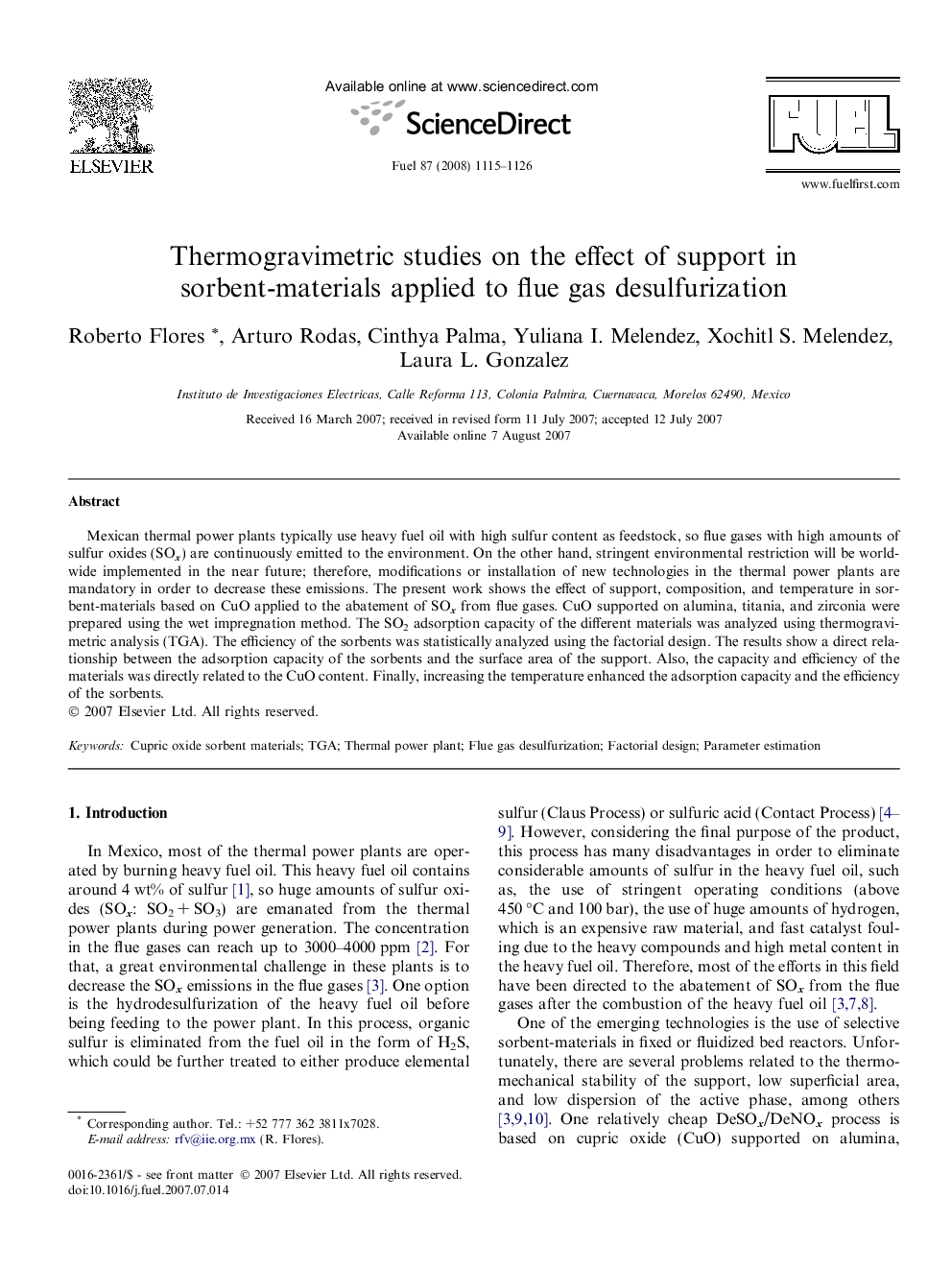| Article ID | Journal | Published Year | Pages | File Type |
|---|---|---|---|---|
| 208013 | Fuel | 2008 | 12 Pages |
Mexican thermal power plants typically use heavy fuel oil with high sulfur content as feedstock, so flue gases with high amounts of sulfur oxides (SOx) are continuously emitted to the environment. On the other hand, stringent environmental restriction will be worldwide implemented in the near future; therefore, modifications or installation of new technologies in the thermal power plants are mandatory in order to decrease these emissions. The present work shows the effect of support, composition, and temperature in sorbent-materials based on CuO applied to the abatement of SOx from flue gases. CuO supported on alumina, titania, and zirconia were prepared using the wet impregnation method. The SO2 adsorption capacity of the different materials was analyzed using thermogravimetric analysis (TGA). The efficiency of the sorbents was statistically analyzed using the factorial design. The results show a direct relationship between the adsorption capacity of the sorbents and the surface area of the support. Also, the capacity and efficiency of the materials was directly related to the CuO content. Finally, increasing the temperature enhanced the adsorption capacity and the efficiency of the sorbents.
